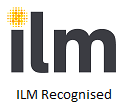Financial Data Analysis Program
| Start Date | End Date | Venue | Fees (US $) | ||
|---|---|---|---|---|---|
| Financial Data Analysis Program | 30 Nov 2025 | 04 Dec 2025 | Dubai, UAE | $ 3,900 | Register |

Financial Data Analysis Program
| Start Date | End Date | Venue | Fees (US $) | |
|---|---|---|---|---|
| Financial Data Analysis Program | 30 Nov 2025 | 04 Dec 2025 | Dubai, UAE | $ 3,900 |
Introduction
This course will provide you with vital skills such as financial forecasting, formulation and analysis of different scenarios, and the confidence to speak persuasively and with assurance about your financial analysis with colleagues and clients, thereby enhancing your reputation as a finance expert. By applying these skills to the tasks and challenges you face in your work, you will experience breakthroughs you may never have thought possible. Participants will develop and refine the following competencies:
- Reading and understanding financial information to evaluate performance and trends accurately
- Embedding and applying present value concepts to expected future cash flows to make the best financial decisions
- Using comparative ratio analysis to pinpoint areas of concern
- Identifying key success factors, warning signals, negative and positive trends
- Becoming familiar with key financial metrics used by leading global companies
- Projecting with confidence the future performance of your firm and its investments through accurate, real-world budgeting
Objectives
- Finance professionals from all sectors, who are keen to boost their performance and knowledge, skills, and reputation in their firms and in the industry
- Personnel related to, moving into or aspiring to roles in finance that require deeper understanding and intelligent interpretation of financial information
- Understanding the content of, and relationships between, primary financial statements (income statement, balance sheet, cash flow statement)
- Utilizing financial statements to evaluate the financial and strategic performance of an organization
- Appreciation of discounted cash flow (DCF) techniques and their application to financial decision making
- Identifying key success factors, early warning signs, and financial momentum signals in your own industry sector
- Understanding of EVA (Economic Value Added), RONA (Return on Net Assets), and other indicators, as performance metrics
- Framing the value creation/destruction process in mergers and acquisitions from the market’s perspective and recognizing signals from the market to management
- Building a realistic budget, under a base case, upside and downside scenarios
- Identification and utilization of financial and business data sources that give insights into business and financial strategies
- Constructing and using rigorous excel spreadsheets for financial analysis, from the basics to more complex models
- Enhancing your professional and personal networks among colleagues of similar background, talent, and potential
This course will enable participants to achieve the following objectives:
Training Methodology
This is an interactive course. There will be open question and answer sessions, regular group exercises and activities, videos, case studies, and presentations on best practices. Participants will have the opportunity to share with the facilitator and other participants on what works well and not so well for them, as well as work on issues from their own organizations. The online course is conducted online using MS-Teams/ClickMeeting.
Who Should Attend?
- Business professionals are responsible for strategic planning and management reporting. Also, anyone who requires a more in-depth understanding of integrated planning and risk analysis techniques.
- Financial planners and cost analysts, professional advisors, accountants, and business consultants would also find this seminar extremely beneficial.
- Also, anyone with direct planning and budgeting responsibility.
Course Outline
Day 1 - Getting Started with Financial Analysis
-
The role and responsibilities of financial management
-
The relationship between accounting and finance in analysis
-
Review of the primary financial statements and their purpose
-
The utility of ROI (return on investment) and similar metrics
-
Identifying key success factors in an industry sector
-
Financial ratios: what they represent, and how they can be used effectively
-
Comparing targets with expectations in financial review
-
Financial performance measurement systems
-
Key accounting assumptions
-
Case study: basic analysis example
Day 2 - Moving Beyond the Basics
-
Definitions of free cash flow (FCF)
-
Altman’s Z-score and it's meaning
-
Dupont analysis and what it reveals
-
Scenario analysis: deciding on calculations and interpreting output
-
Sensitivity analysis: identifying key variables and making assumptions
-
Trend analysis: identification thereof and implications
-
ROE (return on equity) as an indicator
-
Case study: advanced analysis example
Day 3 - Evaluating Information
-
Interpreting new information
-
Focusing on significant metrics
-
Annual reports, footnotes and beyond: deriving signals
-
Evaluating short-term success: process and measures
-
Sourcing and using industry data
-
Benchmarking for evaluation purposes
-
EVA, RONA, EBITDA, etc: their meaning and utility
-
Calculating the results of the analysis
-
Case study: completing and presenting an advanced analysis
Day 4 - Budgeting and the Management Process
-
Strategy: direction and vision
-
Implementing strategy: the operational planning process
-
Budgets: the financial expression of the operating plan
-
The purpose of budgets: a control mechanism
-
The human side of budgeting and finance
-
Elements of the budget framework
-
Advantages and limitations of budgets
-
Reporting: the key to control
-
Case study: preparing a budget
Day 5 - Completing the Budget Using Acquired Tools
-
Assumptions
-
Master budget
-
Pro forma financial statements: income statement, balance sheet, cash flow statement
-
Capital expenditure (CAPEX) budget
-
Sales and marketing budget
-
Production budget
-
General and administrative budgets
-
Case study: completing the budget















